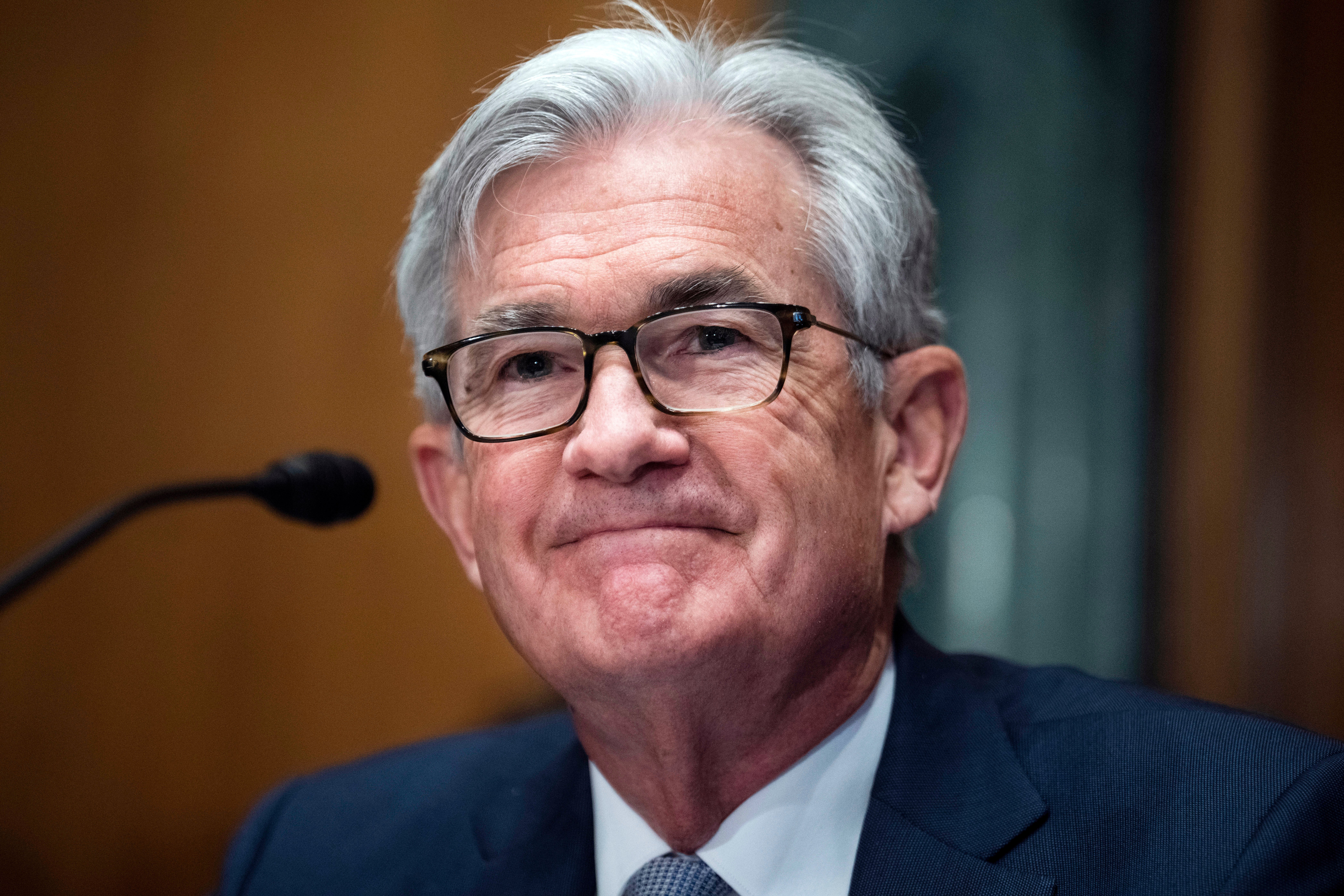Powell says Fed will hike further and faster if necessary
Chair Jerome Powell said Monday that the Federal Reserve would raise its benchmark short-term interest rate faster than expected, and high enough to restrain growth and hiring, if it decides that this would be necessary to slow rampaging inflation

Your support helps us to tell the story
From reproductive rights to climate change to Big Tech, The Independent is on the ground when the story is developing. Whether it's investigating the financials of Elon Musk's pro-Trump PAC or producing our latest documentary, 'The A Word', which shines a light on the American women fighting for reproductive rights, we know how important it is to parse out the facts from the messaging.
At such a critical moment in US history, we need reporters on the ground. Your donation allows us to keep sending journalists to speak to both sides of the story.
The Independent is trusted by Americans across the entire political spectrum. And unlike many other quality news outlets, we choose not to lock Americans out of our reporting and analysis with paywalls. We believe quality journalism should be available to everyone, paid for by those who can afford it.
Your support makes all the difference.Chair Jerome Powell said Monday that the Federal Reserve would raise its benchmark short-term interest rate faster than expected, and high enough to restrain growth and hiring, if it decides that this would be necessary to slow rampaging inflation.
At their meeting last week, Fed officials raised their key rate from near zero to a range of 0.25% to 0.5% and forecast that they would carry out six more quarter-point hikes this year.
Powell said that if necessary, the Fed would be open to raising rates by a more aggressive half-point at multiple meetings and to push rates into “restrictive” territory that would limit growth. The Fed hasn't increased its benchmark rate by a half-point since May 2000.
“We will take the necessary steps to ensure a return to price stability,” he said in a speech to an economics conference. “In particular, if we conclude that it is appropriate to move more aggressively by raising the federal funds rate by more than (a quarter-point) at a meeting or meetings, we will do so.”
The Fed is under pressure from widespread criticism that it has reacted too slowly to a price spike that has catapulted inflation to four-decade highs. At their meeting last week, Fed officials forecast that they would raise rates four additional times in 2023 and that inflation would slow to 2.7% by the end of that year.
At the same time, the policymakers projected that the economy would remain resilient enough to keep growing and that the unemployment rate would fall from its current level of 3.8% to 3.5%, matching a 50-year low reached before the pandemic.
Some economists argue that such a painless outcome — what they refer to as a “soft landing” — is unrealistic, given the challenges the economy faces, including the potential for deeper economic disruptions resulting from Russia's invasion of Ukraine. The war has already raised the cost of oil, wheat, nickel and other vital commodities.
But Powell asserted that the Fed has achieved such soft landings before.
“I believe that the historical record provides some grounds for optimism," he said “Soft, or at least soft-ish, landings have been relatively common in U.S. monetary history.”
Powell’s remarks followed a flurry of comments from officials concerning Fed policy since last week’s meeting, all pointing in a hawkish direction. (“Hawks” typically support higher interest rates to stave off inflation, while “doves” generally prefer lower rates to bolster hiring).
Also on Monday, Raphael Bostic, president of the Federal Reserve Bank of Atlanta, said that controlling inflation “is the top concern that I have for 2022.”
Bostic also said he expects the Fed will raise rates a total of six times this year, and twice more in 2023. That is a more dovish approach than most of his colleagues. But he emphasized that this was mostly because of the extreme uncertainty currently surrounding the economy. If more rate hikes were necessary to slow inflation, he would support them, he said.
“We've been in an emergency posture for a long time,” Bostic said. “We're past that now from an economic perspective. We need to quickly get to neutral,” he said, referring to a level of interest rates that neither encourages nor slows economic growth.